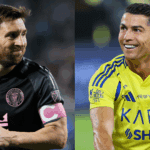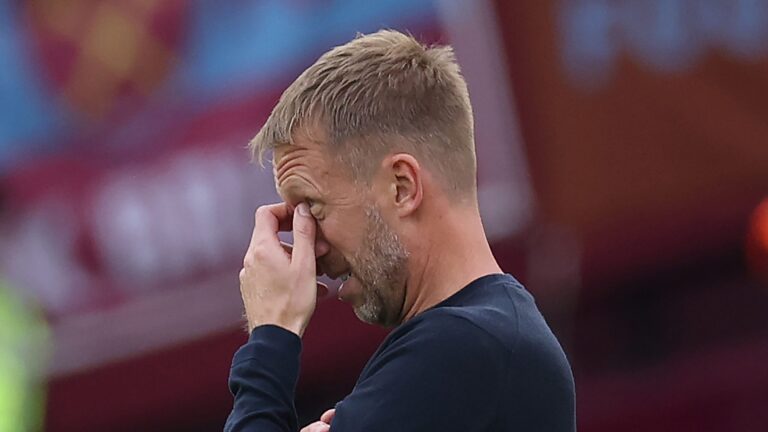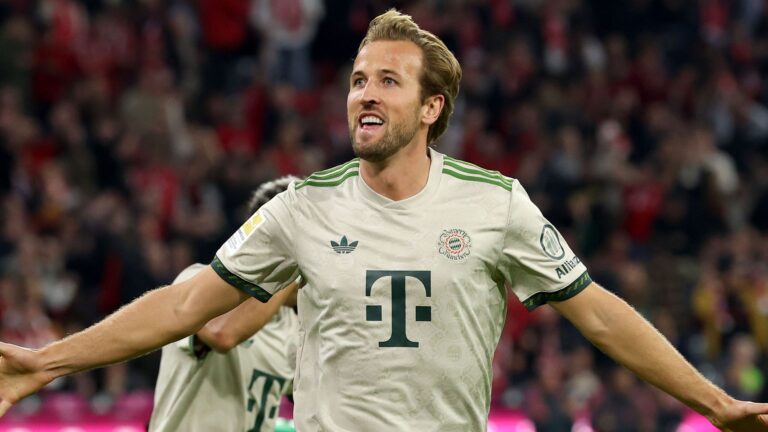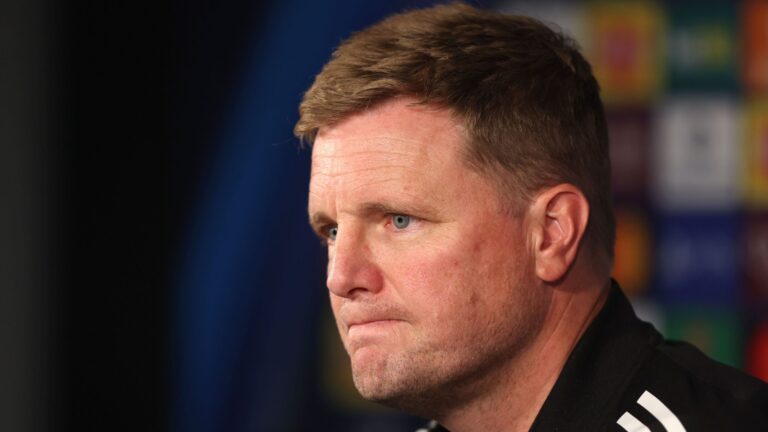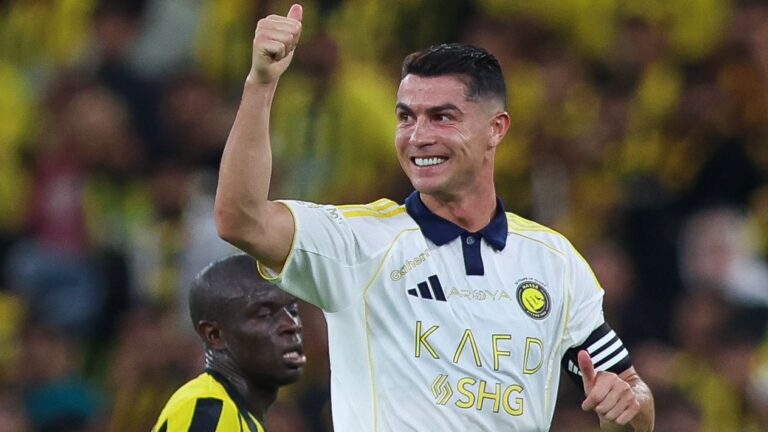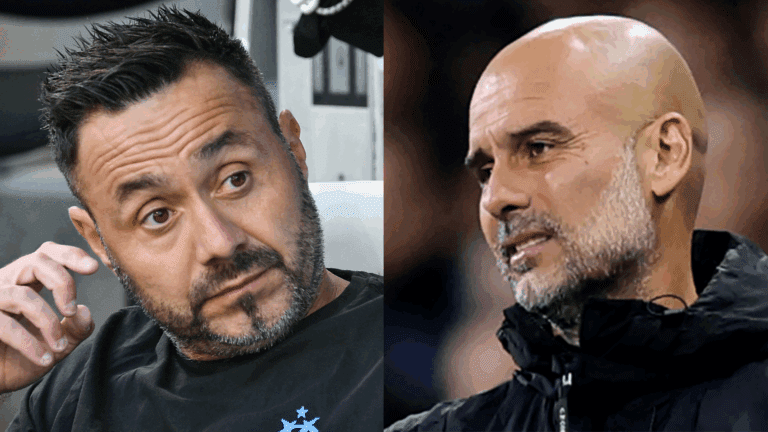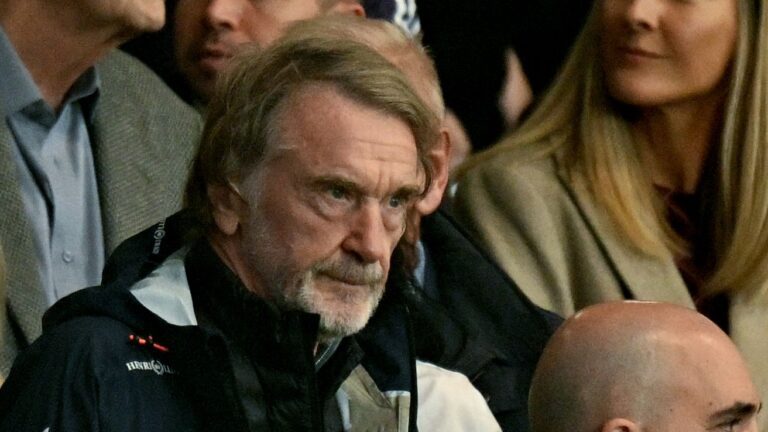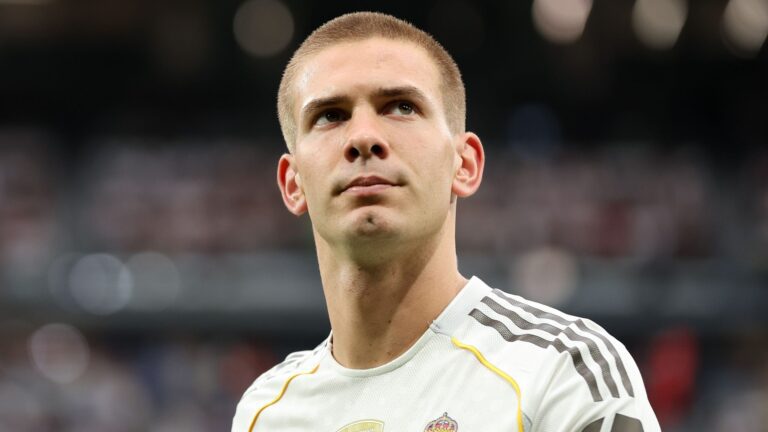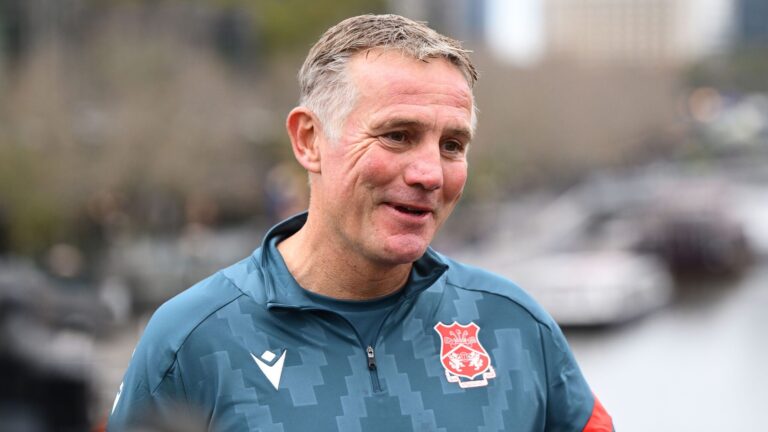


Unveiling the Genetic Secrets Behind Ronaldo’s Timeless Dominance and Messi’s Enduring Magic
Despite the passage of time, football legends Cristiano Ronaldo and Lionel Messi continue to captivate fans with their exceptional performances. Ronaldo, who turned 40 earlier this year, remains in peak form, netting goals at an astonishing rate and pursuing his ambitious milestone of 1,000 career strikes. With recent updates showing him at 950 goals and counting, his dedication to fitness and skill is unmatched. Meanwhile, Messi’s impact in the MLS has been profound, recently scoring his 22nd goal in 23 appearances for Inter Miami under coach Javier Mascherano, highlighting his ongoing influence on the pitch.
The Physical Contrasts Shaping Their Careers
In a fresh perspective from former Manchester United coach Rene Meulensteen, the inherent physical disparities between these two icons come to light. Meulensteen notes that Ronaldo, standing tall at around 187 cm, embodies the essence of a dedicated athlete who has prioritized his body like a finely tuned machine. In contrast, while Messi has also maintained rigorous care for his physique, their natural builds and styles diverge significantly.
How Playing Styles Highlight Genetic Variations
Rather than direct comparisons, Meulensteen emphasizes that Messi’s game has historically revolved around intricate footwork, sharp turns, and sudden bursts of speed. This approach, though masterful, may be influenced by subtle genetic factors that affect recovery and endurance over time. On the other hand, Ronaldo’s methodical self-care and athletic prowess suggest a biological advantage, allowing him to sustain high performance well into his later years. These differences, Meulensteen argues, are not just about training but rooted in innate qualities that make both players extraordinary contributors to football’s allure.
The Rivalry That Fuels Excellence
Throughout their careers, the competitive dynamic between Ronaldo and Messi has pushed them to new heights, fostering a deep respect that enhances their legacies. Meulensteen points out that this ongoing duel has enriched the sport, with Ronaldo’s current physical resilience-evident in his seamless training routines and rapid recovery-potentially stemming from genetic superiority. Meanwhile, Messi might be encountering the natural slowdown that comes with age, underscoring how these biological elements play a pivotal role in their journeys.
Looking Ahead: World Cup Aspirations and Future Triumphs
Anticipating Their Roles in the 2026 World Cup
As the football world eyes the 2026 World Cup across North America, Canada, and Mexico, both stars are poised for potential appearances. Meulensteen is optimistic about Messi’s participation, especially as Argentina seeks to retain their 2022 championship. Yet, the toll of aging-such as prolonged recovery periods and nagging discomforts-could influence their readiness, making Ronaldo’s genetic edge even more apparent in high-stakes events.
Pursuing New Honors Before Retirement
Beyond international play, Messi has already added prestigious titles to his collection, including the Leagues Cup in 2023 and the Supporters’ Shield in 2024 with Inter Miami. Ronaldo, however, is determined to etch his name in history with Al-Nassr, following his recent contract extension. With vows to achieve greatness, he aims to secure his first major trophy there, reflecting the tireless ambition that defines both players’ paths in the evolving landscape of professional football.
The Genetic Edge: Ronaldo vs. Messi
When it comes to the eternal debate of Cristiano Ronaldo and Lionel Messi, genetic differences play a significant role in their playing styles and longevity in football. Former Manchester United assistant Rene Meulensteen has highlighted how Ronaldo’s ability to maintain exceptional form at 40 sets him apart, possibly due to genetic advantages. Let’s dive into what makes these two icons tick and how genetic factors influence their careers.
Insights from Rene Meulensteen on Ronaldo’s Longevity
Rene Meulensteen, who worked closely with Ronaldo during his time at Manchester United, has openly discussed the Portuguese star’s genetic makeup as a key to his sustained excellence. Meulensteen points out that Ronaldo’s rigorous training regimen, combined with his natural genetic predispositions, allows him to perform at a high level even in his 40s. For instance, Ronaldo’s exceptional physical attributes, like his explosive speed and muscular endurance, are often attributed to genetics that favor rapid recovery and injury resistance.
In contrast, Meulensteen suggests that Messi’s genetic profile leans more towards agility, balance, and technical finesse, which have made him a football wizard but might not support the same level of physical dominance as Ronaldo exhibits. Keywords like “genetic differences Ronaldo Messi” and “Ronaldo maintains form at 40” are frequently mentioned in discussions, emphasizing how these inherent traits shape their paths. Meulensteen’s first-hand experiences coaching Ronaldo give his insights credibility, as he recalls how Ronaldo’s dedication to fitness routines amplified his genetic gifts, leading to records like over 800 career goals.
Benefits of Genetic Factors in Sports Performance
Understanding genetic differences between athletes like Ronaldo and Messi isn’t just about comparison-it’s about uncovering benefits that can inspire everyday athletes. Genetic variations can influence factors such as muscle fiber composition, oxygen efficiency, and hormone levels, which directly impact performance. For Ronaldo, benefits include enhanced aerobic capacity and a lower risk of age-related decline, allowing him to compete effectively against younger players.
From a practical standpoint, these genetic advantages highlight how personalized training can maximize potential. Benefits include improved injury prevention, as seen in Ronaldo’s career, where his genetics help him bounce back quickly from intense matches. This knowledge can be applied broadly, encouraging athletes to get genetic testing to tailor their regimes, ultimately boosting endurance and skill longevity in sports like football.
Practical Tips for Maintaining Peak Performance Like Ronaldo
If you’re inspired by Ronaldo’s ability to stay in top shape, incorporating practical tips based on genetic insights can help. Start by focusing on hybrid training that combines strength and cardio, mimicking Ronaldo’s routines. For example, include high-intensity interval training (HIIT) sessions three times a week to build the explosive power that genetic differences might enhance.
Another tip is to prioritize nutrition that supports your body’s natural abilities-Ronaldo’s diet, rich in lean proteins and antioxidants, aids recovery and maintains muscle mass. Remember, while you can’t change your genetics, you can optimize them through sleep (aim for 7-9 hours) and stress management, as these factors interact with genetic expression. Tools like wearable fitness trackers can monitor your progress, making it easier to adopt habits that promote longevity, much like how Ronaldo sustains his form at 40.
Case Studies of Athletic Longevity in Football
Looking at case studies, Ronaldo’s career serves as a prime example of how genetic differences contribute to longevity. At 40, he’s still scoring prolifically for clubs like Al-Nassr, outpacing many peers. Compare this to other athletes: For instance, players like Ryan Giggs, who played until 40, showed similar traits of genetic resilience, as noted in sports science reports.
In Messi’s case, his career trajectory highlights genetic agility over raw power, with fewer injury setbacks compared to Ronaldo’s physical style. A study from the Journal of Sports Science analyzed elite footballers and found that those with Ronaldo-like genetics often have a higher proportion of fast-twitch muscle fibers, aiding in sustained high performance. These case studies underscore that while genetics set a foundation, environmental factors like training amplify them, offering valuable lessons for aspiring athletes.
First-Hand Experiences from Football Experts
Drawing from first-hand experiences, experts like Meulensteen provide a window into how genetic differences play out in real time. During his tenure at Manchester United, Meulensteen witnessed Ronaldo’s genetic edge in action, from his ability to train harder than most to his quick adaptation to new tactics. This personal insight reveals that genetics aren’t destiny; they’re a starting point that, when paired with mental toughness, leads to extraordinary results.
Other coaches, like those who’ve worked with Messi at Barcelona, share experiences of his innate balance and vision, which stem from genetic neuromuscular control. These accounts, often shared in interviews and documentaries, emphasize the importance of leveraging genetic profiles for success, making the Ronaldo-Messi rivalry a fascinating study in human potential.

